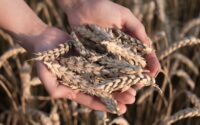
Seeking Forgiveness In The Second Ashra Of Ramadan

Every Ashra of Ramadan has its particular significance associated with it. With respect to each of the significance, Muslims try pursuing that particular Ashra with that objective in order to achieve the established significance. In this regard, the second Ashra of Ramadan is known for forgiveness.

We as humans commit mistakes and sins every now and then, some of them are done out of purpose and willingly while there are others that happen unintentionally or without any purpose. Regardless of the nature of the sins, it is imperative that a Muslim seeks forgiveness for them and repent over them. Ramadan in general and the second Ashra of it in particular is a great chance for Muslims to repent and seek forgiveness for the sins. Before moving on to the ways in which you can seek forgiveness in the second Ashra of Ramadan, the need is to understand the emphasis of Islam on forgiveness.
Forgiveness:
Islam is aware of the fact that as humans it is quite natural that we commit mistakes. Although the recognition of the erring nature of humans does not means that Islam gives a free pass when it comes to committing mistakes or sins, rather Islam encourages the followers to repent over the sins which they commit and seek forgiveness. Moreover, this act of seeking forgiveness is not only an effort by a human, rather Allah Almighty reciprocates the true plea for forgiveness by forgiving such a person. In Quran, Allah says:
“And seek forgiveness of Allah. Indeed Allah is Forgiving and Merciful.” (73:20)
In this ayah the people are commended to seek forgiveness from Allah Almighty and this seeking of forgiveness is not just made a one way street, rather a Muslim is encouraged in doing so by mentioning that Allah Almighty is Forgiving. Therefore, seeking forgiveness is not something that a Muslim does without the hope of being forgiven, rather whenever a Muslim seeks forgiveness he or she must remain hopeful that Allah the Merciful will forgive them for whatever sins they have committed and they must also resolve not to repeat their sin or sins in the future.
At another place in Quran, Allah Almighty says:

“And whoever does a wrong or wrongs himself but then seeks forgiveness will find Allah Forgiving and Merciful.” (4:110)
This ayah addresses to the important fact, which is most commonly observed among people who commit sin. People who have spent a life of sin after become hopeless of their future and don’t repent. According to them they have had gravely sinned therefore, they think that there is no way back for them. This ayah addresses such people and tells that they should not go into despair when it comes to their sins and seeking forgiveness for them, rather they ought to seek forgiveness as soon as a sin takes place from them and if they do so, then they will find Allah Almighty as Forgiving and He most definitely will forgive their sins.
Regarding the matter of forgiveness, Prophet Muhammad (PBUH) said in His hadith:
“If anyone constantly seeks pardon (from Allah), Allah will appoint for him a way out of every distress and a relief from every anxiety, and will provide sustenance for him from where he expects not.” (Abu Dawud)
From this hadith it is clear that seeking forgiveness is not only a means of penance and clearing and cleansing of one’s soul, rather seeking of forgiveness also leads to the life of a person becoming easy and Allah Almighty providing sustenance to the person from sources about which the person least expects. Therefore, forgiveness is not merely cleansing of one’s conscience and soul, rather it is also a means of making life better both in this life and in the world hereafter.
Seeking Forgiveness In Ramadan:
The second Ashra of Ramadan is specific to seeking of forgiveness; therefore, in addition to seeking forgiveness throughout the month, a Muslim must also make sure that the second Ashra is specifically utilized for this purpose and in this Ashra all those deeds that invoke the Forgiving quality of Allah are undertaken. In this regard, the following deeds can work the best.
Don’t Miss Obligatory Prayers:
The obligatory prayers are what point to the fact that a Muslim is a servant of Allah Almighty and he or she submits to Him. When such is the notion it automatically means that the person who prays is actually in search of forgiveness from His lord besides other things. Thus, when a Muslim prays five times a day in the Holy month of Ramadan, it increases the chances of being forgiven for a Muslim, therefore, under no circumstances should the obligatory prayers be missed during the second Ashra of Ramadan.
Read and Recite The Holy Quran
Quran is the Holy Book which encloses the key to success hereafter and also the one who recites, reads, and understands it with meaning, will eventually seek the mercy and forgiveness of Allah the Almighty. Therefore, you must regularly take time out in the second Ashra of Ramadan for reciting the verses and chapters of Quran. Focus the message being given in the Quran as it would ultimately drive your life towards the righteous path and whosoever falls on Sirat e Mustaqeem, ultimately is forgiven by the mercy of Allah.
Note – Those Muslims who cannot read Quran in Arabic, can join QuranReading.com along with kids for online Quran Classes.
Do As Much Tasbeeh As Possible:
Offering regular prayers requires preparation and is time bound, however, the performing of Tasbeeh, which is a verbal praise and worship of Allah Almighty is not time bound. One can do Tasbeeh of Allah Almighty while sitting , while lying down, walking or doing anything. This praise and worship of Allah brings a person close to Him, thus, when in such a situation a person asks for His forgiveness, the chances of it being granted increase exponentially. Therefore, a Muslim must make sure that he or she performs excessive Tasbeeh during the second Ashra of Ramadan.
Offer Taraweeh:
Taraweeh is one of the renowned Ramadan Sunnah’s of Prophet Muhammad (PBUH). It is an additional prayer that is offered only in Ramadan after the Isha prayers. When something is so specific to Ramadan, then it does not require a genius to understand the fact that Taraweeh carries great reward in the month of Ramadan. Moreover, the forms of worship with great reward naturally indicate that a person undertaking them has a greater chance of seeking and being rewarded with forgiveness. Therefore, a Muslim must make sure that during the month of Ramadan in general and the second Ashra in particular, he or she must undertake the Sunnah of Taraweeh regularly and then ask Allah for forgiveness.
Conclusion:
In short, the second Ashra of Ramadan is for forgiveness, therefore, naturally the focus of a Muslim must be upon seeking forgiveness during these ten days so that the previous sins are forgiven and he or she elevates spiritually after being rinsed from sins.




